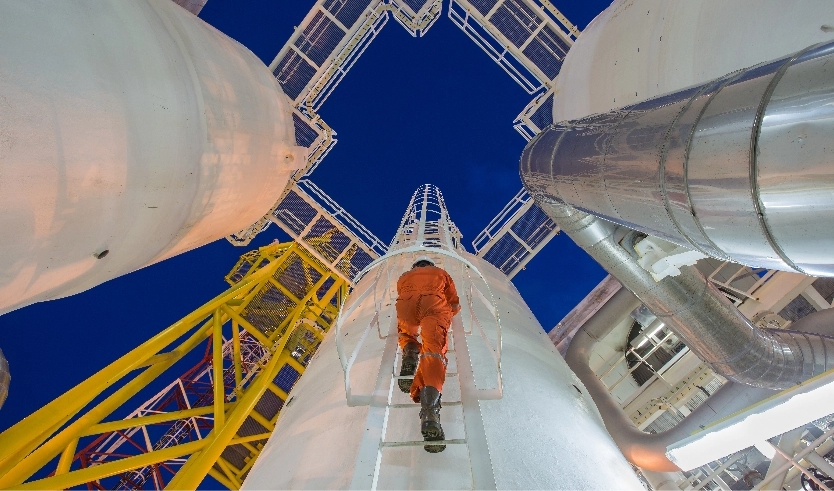Rising expectations from regulators and shareholders are motivating many organizations, including federal agencies, to adopt new, ambitious approaches toward critical infrastructure improvements. With these approaches, their transportation, communications, and utilities can better withstand natural and manmade hazards. In “future-proofing” their infrastructure assets, our clients are largely improving system efficiencies and business practices and reducing their organizational exposure to risk. Currently, Weston is helping our clients achieve their highest priority environmental and economic goals, adapt to changing conditions, and withstand, respond to, and recover from disruptions.
Maintaining Mission-Critical Functions Without Disruption
The Army, Weston’s largest client, recognizes the existential threat of climate change to our homeland. We are working with the Army to implement resilience strategies for its military installations, ensuring they remain fully operational during natural and manmade hazards. These hazards range from rising sea levels, extreme weather, and natural disasters to cyberattacks and other military system vulnerabilities. The Army must perform mission-essential functions without disruption to training, mobilization, and deployment. We are committed to supporting the Army’s optimization of electricity, water, and fuel use to save resources and minimize environmental impacts.
In February 2022, the Army published the “Army Climate Strategy” that targets long-term, tangible goals informed by the results of vulnerability assessments, as detailed in the “Army Climate Resilience Handbook” (August 2020) and “Army Climate Assessment Tool” (July 2020). In line with these goals, the “Army Installation Energy and Strategic Water Plan” (December 2020) targets a 50% reduction of energy and water deficiencies impacting critical base missions by September 2028. Through our depth of experience, strong integration capabilities, and focus on clean energy, Weston stands ready to carry out the Army’s risk reduction efforts.
Adopting the Army’s Resilience Mission as Our Own
Mission continuity requires resilient infrastructure for energy, water and wastewater, communications, security, and other systems necessary in the event of a threat. Weston’s experience on nationwide Department of Defense (DoD) Facility Repair Renovation (FRR) and Rapid Disaster Infrastructure (RDI) contracts, as well as on various civilian agency contracts for design-build rapid response, uniquely positions us to deliver expedited design-build projects or quickly respond to urgent infrastructure needs with turnkey, climate-resilient solutions.
Before climate-related events occur, Weston adopts the Army’s resilience objectives as our own by addressing time-critical, climate-vulnerable systems, as demonstrated through our $27-million-dollar suite of dam restoration projects spanning the Western United States. Chief among them, the Whitney Lake Dam, Texas, had deteriorated from historical drought conditions and heavy rainfall, threatening dam collapse and contamination in the potable water supply and requiring $17 million in repairs. Weston restored the dam’s physical structures to the fullest level of protection by replacing degraded material, while also maintaining readiness during construction activities to ensure optimal performance within a 24-hour advance notice of a potential storm. Our nimble and adaptive solutions reinforced the Army’s mission to provide flood control, renewable energy, and recreational opportunities for Central Texas communities.
We are currently performing $18 million in upgrades to aging potable water and sanitary sewer systems at Fort Detrick, Maryland, the nation’s premier biodefense facility. After investigating the systems’ performance, compliance, and failure points, we developed investment strategies, cost estimates, and design solutions. We are now constructing upgrades that will allow Fort Detrick to sustain its mission of efficient water delivery for the military community and environmental compliance with sewage disposal and stormwater management, ultimately enhancing community health and safety during and after storms.
Weston also supports Army requirements as part of the interagency response to and recovery from natural disasters, like Hurricane Maria’s devastation to Puerto Rico in 2017. Under a $218-million-dollar project, we constructed a temporary 50-megawatt power generation station providing power for San Juan. Our quick mobilization and logistics expertise translated to “lights on” for the hard-hit Puerto Rican community within 21 days from the hurricane’s landfall as well as 16 months of power support until their Palo Seco Power Station was restored. The Army rated our efforts in Fort Detrick and San Juan as “Exceptional.” These ratings reflect our commitment to meet critical infrastructure improvement objectives that implement Army’s resilience strategies.
Reflecting Our Core Values and Capabilities
Weston’s investment in delivering adaptive infrastructure to meet Army requirements exemplifies our “client focus” core value. Successful development of resilient infrastructure solutions requires an understanding of the client’s unique mission to improve infrastructure performance. In holding ourselves accountable, we ask, “Why must the infrastructure perform well? What is the impact if it fails to do so? What solutions can Weston offer to mitigate risk and facilitate mission continuity?” Weston prioritizes support for the client and its impacted communities. Whatever the challenge, we build trusting relationships with our clients by anticipating and prioritizing their needs and by working in partnership with their staff in a manner that goes above and beyond the call of duty to support our nation.
Weston has a multitude of open positions. Apply to join our national team of employee-owners today!

